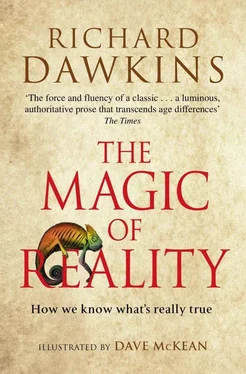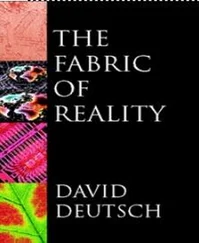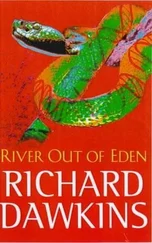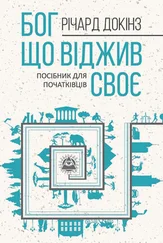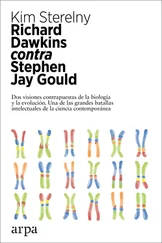Let’s come back to miracle stories in general, and how they get started. Perhaps the most famous instance of young girls saying weird things and being believed is the so-called miracle of Fatima. In 1917, at Fatima in Portugal, a ten-year-old shepherd girl called Lucia, accompanied by her two young cousins, Francisco and Jacinta, claimed to have seen a vision up on a hill. The children said the hill had been visited by a woman called the ‘Virgin Mary’, who, though long dead, had become a kind of goddess of the local religion. According to Lucia, the ghostly Mary spoke to her and told her and the other children that she would keep returning on the 13th of each month until October 13th, when she would perform a miracle to prove she was who she said she was. Rumours of the expected miracle spread around Portugal, and on the appointed day a huge crowd of more than 70,000 is said to have gathered at the spot. The miracle, when it came, involved the sun. Accounts of exactly what the sun is supposed to have done vary. To some witnesses it seemed to ‘dance’, to others it whirled round and round like a Catherine wheel. The most dramatic claim was that
…the sun seemed to tear itself from the heavens and come crashing down upon the horrified multitude… Just when it seemed that the ball of fire would fall upon and destroy them, the miracle ceased, and the sun resumed its normal place in the sky, shining forth as peacefully as ever.
Now, what do we think really happened? Was there really a miracle at Fatima? Did the ghostly Mary really appear? Conveniently, she was invisible to everybody except the three children, so we don’t have to take that part of the story very seriously. But the miracle of the moving sun is supposed to have been seen by 70,000 people, so what are we to make of that? Did the sun really move (or did the Earth move relative to it, so that the sun appeared to move)? Let’s think like Hume. Here are three possibilities to consider.
1. The sun really did move about the sky and come crashing down towards the horrified crowd, before resuming its former position. (Or the Earth changed its rotation pattern, in such a way that it looked as though the sun had moved.)
2. Neither the sun nor the Earth really moved, and 70,000 people simultaneously experienced a hallucination.
3. Nothing happened at all, and the whole incident was misreported, exaggerated or simply made up.
Which of these possibilities do you think is the most plausible? All three of them seem pretty unlikely. But surely Possibility 3 is the least far-fetched, the least deserving of the title of miracle. To accept Possibility 3 we only have to believe that somebody told a lie in reporting that 70,000 people saw the sun move, and the lie got repeated and spread around, just like any of the popular urban legends that whizz around the internet nowadays. Possibility 2 is less likely. It requires us to believe that 70,000 people simultaneously experienced a hallucination involving the sun. Rather far-fetched. But however unlikely – almost miraculous – Possibility 2 may seem, even that would be far less of a miracle than Possibility 1.
The sun is visible all over the daylight half of the world, not just in one Portuguese town. If it really had moved, millions of people all over the hemisphere – not just those in Fatima – would have been terrified out of their wits. Actually the case against Possibility 1 is even stronger than that. If the sun really had moved at the speed reported – ‘crashing down’ towards the crowd – or if something had happened to change the Earth’s spinning sufficiently to make it look as though the sun had moved at that colossal speed – it would have been the catastrophic end of all of us. Either the Earth would have been kicked out of its orbit and would now be a lifeless, cold rock hurtling through the dark void, or we’d have careered into the sun and been fried. Remember from Chapter 5 that the Earth is spinning at a rate of many hundreds of miles per hour (1,000 mph if measured at the equator), yet the apparent motion of the sun is still too slow for us to see it, because it is so far away. If sun and Earth suddenly moved relative to one another fast enough for a crowd to see the sun ‘crashing down’ towards them, the real movement would have to be thousands of times faster than usual and it literally would be the end of the world.
It was said that Lucia told her audience to stare at the sun. This is an extremely stupid thing to do, by the way, because it could permanently damage your eyes. It also could induce a hallucination that the sun was wobbling in the sky. Even if only one person hallucinated, or lied about seeing the sun move, and told somebody else, who told somebody else, who told lots of other people, each of whom told lots of other people… that would be enough to start a popular rumour. Eventually one of those people who heard the rumour would be likely to write it down. But whether or not that’s actually what happened is not what matters, for Hume. What matters is that, however implausible it might or might not be for 70,000 witnesses to be wrong, it is still far less implausible than for the sun to have moved in the way described.
Hume didn’t come right out and say miracles are impossible. Instead, he asked us to think of a miracle as an improbable event – an event whose improbability we might estimate. The estimate doesn’t have to be exact. It’s enough that the improbability of a suggested miracle can be roughly placed on some sort of scale, and then compared with an alternative such as a hallucination, or a lie.
Let’s go back to that game of cards we talked about in the first chapter. You remember we imagined that four players were each dealt a perfect hand: pure clubs, pure hearts, pure spades, pure diamonds. If this actually happened, what should we think about it? Again, we can write down three possibilities.
1. There has been a supernatural miracle, perpetrated by some wizard or witch or warlock or god with special powers, who violated the laws of science in such a way as to change all the little hearts and clubs and diamonds and spades on the cards, so that they were perfectly positioned for the deal.
2. It is a remarkable coincidence. The shuffling just happened to produce this particular perfect deal.
3. Somebody has performed a clever conjuring trick, perhaps substituting a previously doctored pack of cards which he had concealed up his sleeve, for the pack we all saw being shuffled out in the open.
Now, what do you think, bearing in mind Hume’s advice? Each of the three possibilities may seem a bit hard to believe. But Possibility 3 is by far the easiest to believe. Possibility 2 could happen, but we have calculated how unlikely it is, and it is very very unlikely indeed: 53,644,737,765,488,792,839,237,440,000 to 1. We can’t calculate the odds against Possibility 1 as precisely as that, but just think about it: some power or force, which has never been properly demonstrated and which nobody understands, manipulated red and black printing ink on dozens of cards simultaneously. You might be reluctant to use a strong word like ‘impossible’, but Hume isn’t asking you to do that: all he’s asking you to do is to compare it to the alternatives, which in this case consist of a conjuring trick and a gigantic stroke of luck. Haven’t we all seen conjuring tricks (often involving cards, by the way) which are at least as mind-boggling as this? Obviously the most likely explanation for the perfect deal is not pure luck, still less some miraculous interference with the laws of the universe, but a trick by a conjuror or a dishonest card-sharp.
Let’s look at another famous miracle story, the one I mentioned earlier about the Jewish preacher called Jesus turning water into wine. Once again, we can list three main kinds of possible explanation.
Читать дальше
